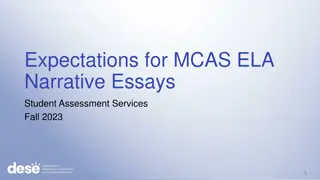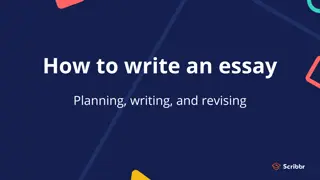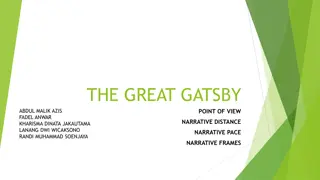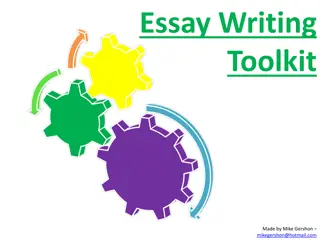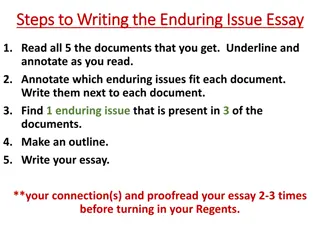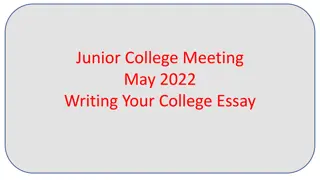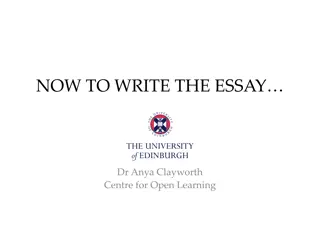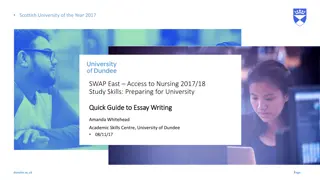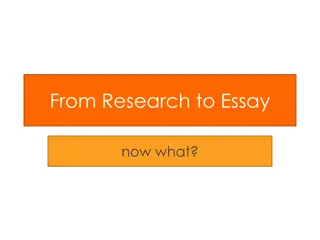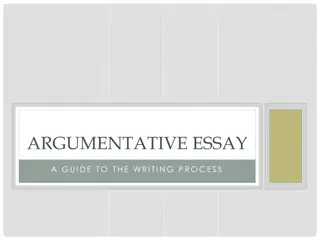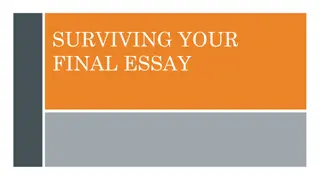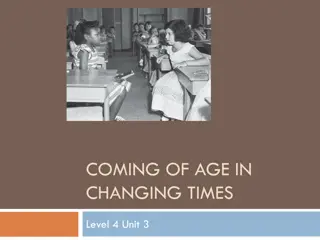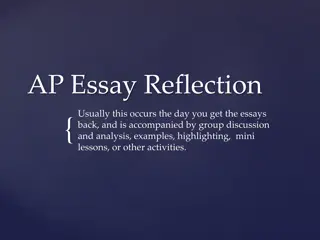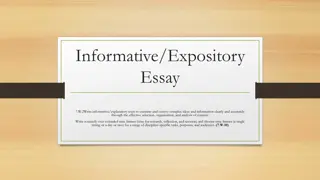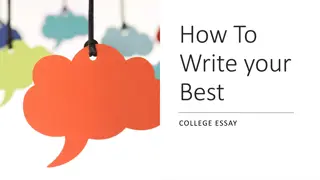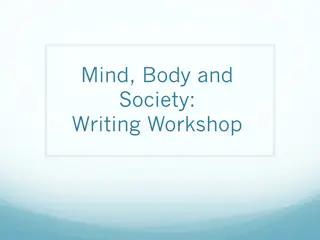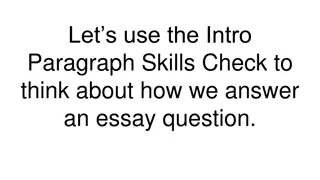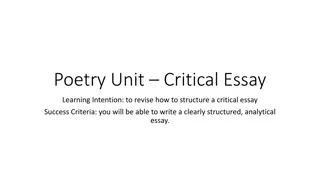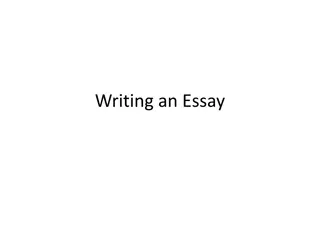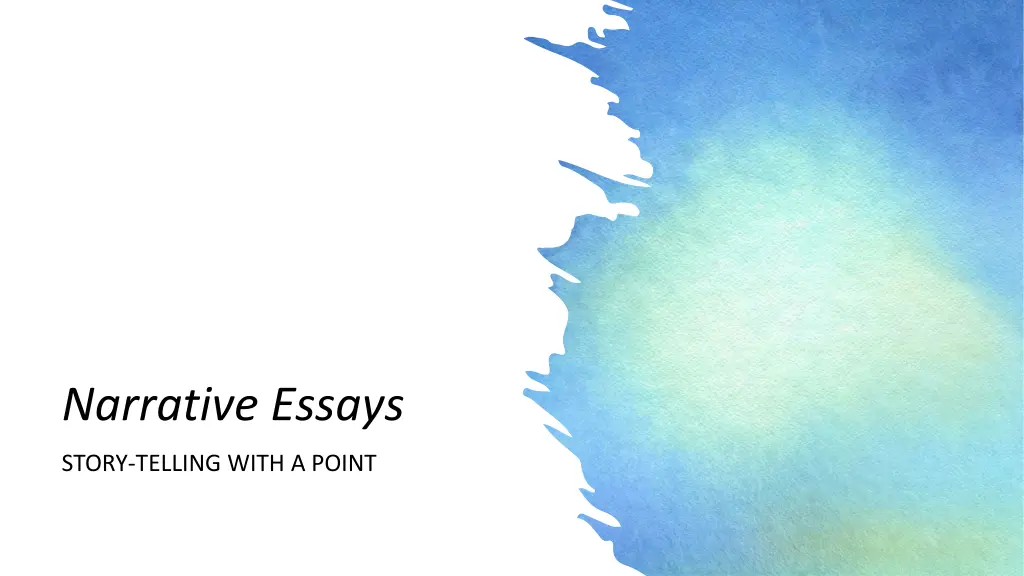
Crafting Engaging Narrative Essays: Tips and Guidelines
Learn how to create compelling narrative essays that captivate readers' attention and convey a meaningful point. Discover essential elements such as having a clear thesis, using effective language, staying organized, and drawing from storytelling techniques to enhance your writing. Explore practical advice on structuring your essay and utilizing what you've learned to craft impactful narratives that resonate with your audience.
Download Presentation

Please find below an Image/Link to download the presentation.
The content on the website is provided AS IS for your information and personal use only. It may not be sold, licensed, or shared on other websites without obtaining consent from the author. If you encounter any issues during the download, it is possible that the publisher has removed the file from their server.
You are allowed to download the files provided on this website for personal or commercial use, subject to the condition that they are used lawfully. All files are the property of their respective owners.
The content on the website is provided AS IS for your information and personal use only. It may not be sold, licensed, or shared on other websites without obtaining consent from the author.
E N D
Presentation Transcript
Narrative Essays STORY-TELLING WITH A POINT
What is a Narrative Essay? A narrative essay tells a story. It is (usually) personal and creative. It tests your ability to create a clear and engaging narrative in order to prove/support a point. Because it is written as a story, a narrative essay should include all the parts of a story: introduction, plot, characters, setting, climax, and conclusion.
Have a Point Make a point! Your narrative essay should have a thesis (a statement identifying the topic of your paper in English, usually a comment about humanity or society) If there is no point to your narrative, why write one at all?
Language Much like any other kind of essay, effective language is key. While you are encouraged to use figurative language, don t go overboard with your extra words keep it concise and to-the-point. Use specific language to bring out the emotions and senses of the reader. Avoid words like things , stuff , very , etc. You can write in the first person ( I is welcome!)
As Always, Be Organized! While narrative essays are far more open-ended and creative than typical analysis or expository essays, they still rely on a plan/organization. Ensure you have a clear introduction; don t make your reader figure out what your essay is about. You are in control of your essay, so guide it where you want it to go.
Use What you have learned already! We have covered short stories and figurative language prior to these essays being assigned: that is NOT a mistake. Use what you have learned about storytelling and effective language to enhance your narrative essay. Strong writing doesn t use phrases like in this paper, I will or in the last paragraph . These are not effective and come across as unsophisticated. Make use of transition words! (list of these on the EduBlog)
Your Essay topics: 1. Movies and books often talk about the importance of loyalty and friendship. Talk about a time in your life when friendship proved to be of great importance to you. 2. How people feel about a problem or challenge often reveals a lot about their character. Describe a time you encountered a difficult problem and how you solved it. Maybe you didn t solve it. Write about it. 3. We often put people we admire on a pedestal so high that we forget that they re human. Describe a time when you realized that someone you admired was imperfect. 4. Describe an experience that led you to change a long-held opinion.
Technicalities: 1. Your essay should be approximately 750 words (10% more or less is fine) 2. Avoid contractions (ex. can t should be cannot) 3. Avoid biased language or overgeneralizing 4. Use appropriate language 5. Essay should be semi-formal (you re not presenting at Harvard, but you re not texting a friend there s a big space in-between in which you should be writing) 6. Due Friday at noon

